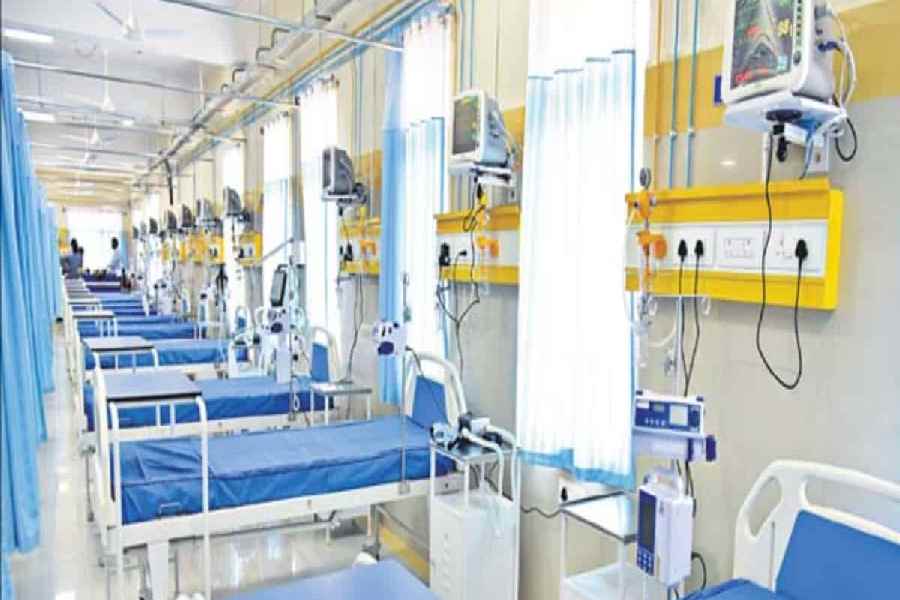Panic-stricken fever patients and family members are insisting on admission at many hospitals, a situation that public health experts say is exacerbated by lack of credible information about the scale of the current dengue infection in the state.
An expert in Delhi said lack of communication, resulting in unavailability of data about dengue in the public domain, is the principal reason for the panic.
A 50-year-old woman, a resident of Garia, had fever for two days. On Tuesday morning, her husband took her to the Emergency ward of a private hospital off EM Bypass and requested doctors to admit her.
“We were scared because we thought she had dengue. A doctor in the Emergency said the symptoms did not indicate that her condition was critical and advised us to get some tests done first,” the husband said.
Several hospitals have increased the bed count in the Emergency department to accommodate fever patients.
“Seven to eight fever patients are turning up daily on an average requesting admission. We conduct dengue and other tests and then decide on admission,” said Sudipta Mitra, chief executive of Peerless Hospital.
The hospital has set up six more beds in the Emergency ward. “It is taking around two hours to know whether a patient with fever has dengue and needs to be admitted. This is creating congestion in the Emergency ward,” said Mitra.
AMRI Hospitals has added eight beds to the Emergency wards in its units in Dhakuria, Mukundapur and Salt Lake.
“We are seeing a crisis of beds in the Emergency because many fever patients are coming for admission. If they are less critical, we are asking them to go home and remain under observation. They are being told to come back if the condition worsens,” said Rupak Barua, group CEO, AMRI Hospitals.
At Belle Vue Clinic, 20 per cent of the patients are suffering from fever.
“Our hospital is full and many patients with fever are getting admitted because of panic. There is a huge pressure on the infrastructure, including diagnostic laboratories,” said Pradip Tondon, CEO of Belle Vue.
Chandramouli Bhattacharya, infectious disease specialist at Peerless Hospital, said that since many fever patients are coming to the hospital for admission, several factors are being considered before deciding whether a patient needs admission or not.
“Those suffering from fever for two to three days and are not having any severe symptoms should stay at home under observation, unless they lack access to medical facilities. We are looking for signs like dehydration, respiratory distress, altered sensorium, recurrent vomiting and low blood pressure. If these are present, then we are recommending admission,” said Bhattacharya.
“Usually, viral respiratory infections are self-limiting and the patient should get better after three days of fever. But for those who are not getting better after three days, hospital admission is required for further investigations.”
As for dengue patients, the doctor said: “If the hematocrit level is unusually high and the platelet count is lower than the recommended level, the patient should be admitted.”
A state health department official said they were raising awareness about dengue. “Urban local bodies and panchayats have been asked to launch vector-control drives,” the official said.
An entomologist in Delhi said the number of dengue cases should be made public. “Numbers are important for the containment of an outbreak. This helps in pinpointing the disease zones. The community has to be communicated about the risk. At the same time, monitoring the situation and controlling transmission are crucial,” the expert said.
